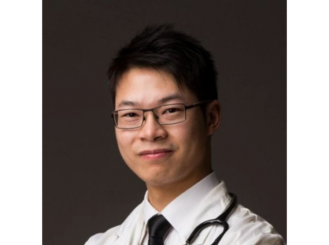May 06, 2022
Rashid N Lui, MBChB (CUHK), MRCP (UK), FRCP (Lond), FHKCP, FHKAM (Medicine), is a clinical assistant professor (honorary) and a specialist in gastroenterology and hepatology at the Chinese University of Hong Kong, Hong Kong, China. He is a member of the Trainee & Early Career Advisory Group and was selected to participate in the inaugural cohort of the ASCO Leadership Development Program for Asia-Pacific (LDP-AP). Follow Dr. Lui on Twitter @RashidLui.
How did you initially choose your current career path? Were there any unexpected detours along the way?
RL: I have always found endoscopy fascinating as it is a powerful tool that extends our reach to the innards of the human body. Due to this reason, I started my training as a gastroenterologist and hepatologist. However, I quickly found that the patients whom I could help the most were those suffering from cancer. Therefore, I gradually gravitated towards dedicating my time and effort to taking care of these patients.
Almost immediately I recognized that the current system we have in Hong Kong delivers cancer care in a very fragmented manner which is not patient-centric at all. For example, a patient with colorectal cancer would be visiting various different subspecialties, and as a gastroenterologist often we are the first to establish rapport with them and break the bad news after doing the initial endoscopy. Despite this, they are then referred off to other specialties such as surgery and oncology but often they show up again later on for some form of endoscopic palliative care. Seeing these patients again really made me think about how I could have helped them more, and after some solemn conversations with these patients and their caregivers, one of the common recurring themes was that the navigation of the byzantine medical system was almost as bad as receiving the diagnosis of cancer itself.
I came to the conclusion that if the system was re-designed where the patient was the focus, as a gastroenterologist and endoscopist we would already be accompanying them from the beginning to the end of their patient journey; it would make even more sense that we play a more prominent role in between. This would be a more humane and compassionate way to deliver cancer care.
After completing my training in gastroenterology and hepatology and advanced internal medicine, I sought the advice of my mentors, and with the blessing of my department, I then took the unorthodox path of pursuing further training in medical oncology, which I completed in December 2021. Hopefully this unique skill set will allow me to focus on the provision of personalized care for individuals suffering from digestive cancers, and to spearhead the development of gastrointestinal (GI) oncology as a formal specialty in the Asia-Pacific region.
I really have to thank Prof. Joseph J.Y. Sung, MD, PhD, MBBS, who encouraged me to pursue my dreams and take the road less travelled, and Prof. Brigette Ma, MD, who took me under her wing and mentored me during my training in oncology. They always put patients first, showed me the importance of dedication and commitment, kindled my inner passion for conducting research, and inspired me to pay it forward to nurture the next generation of gastrointestinal oncologists.
Describe your typical workday.
RL: It usually starts with the morning rounds, followed by endoscopy sessions, then the clinics including the chemotherapy day sessions. I do try to squeeze a bit of time in between to take a break and have lunch as I don’t work well on an empty stomach (also need the coffee!). After hours there are the usual weekly research meetings and tumor boards. It’s guaranteed to be busy but it’s also very fulfilling.
If you have to pick one aspect, what part of your job is your favorite? What part is the most challenging or frustrating?
RL: There is an ineffable satisfaction when I re-encounter patients whom I scoped and made the initial diagnosis of cancer, who come back for follow-up after their treatments, now cancer-free and doing well.
It’s always frustrating to come across patients with early-onset digestive cancers who deteriorate despite our best attempts of trying to control the disease. Telling someone that there are no good options left is always difficult, but especially so for younger patients.
What do you wish you had known before you chose your career path?
RL: That the field of oncology is advancing at such a breathtaking speed! The sheer amount of research that I studied for the exams was really a culture shock for me. I firmly believe that no branch of clinical medicine has had so many breakthroughs in such a short space of time.
Why would you recommend this career to someone starting out in oncology?
RL: Being a gastrointestinal oncologist with training in both gastroenterology and oncology allows me to get the best of both worlds. On the one hand, advances of endoscopy have allowed us to do things we weren’t able to do previously, and on the other, the latest developments in oncology and the emergence of targeted treatments have really led to a paradigm shift in how we treat many patients with cancer. In addition, having been trained in both specialties gives me a much better appreciation and understanding of how all these specialties work together to try and help these patients.
What kind of person thrives in this professional environment?
RL: I would think that someone who is willing to go the extra mile and think outside the box would thrive in this environment. I truly believe that the ageing population and increasing burden of digestive cancers are threats to health care systems worldwide. The synergies between gastroenterology and oncology are evident and offer a potential solution to this problem. This is also a great opportunity to be innovative and implement new service models that are more patient-centered.

